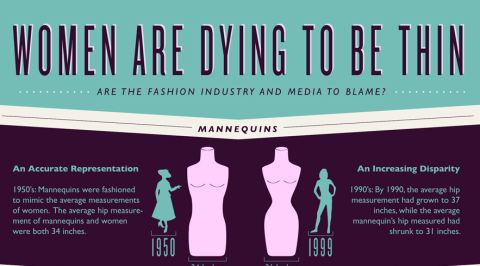Remember when Andy and Emily were throwing around compliments in The Devil Wears Prada? We just brushed off the fact that Emily said “I’m on this new diet. Well, I don’t eat anything and when I feel like I’m about to faint I eat a cube of cheese. I’m just one stomach flu away from my goal weight”, because she was getting ready for Paris Fashion Week? Or those two times in 2009 when Alexander McQueen overdosed and unfortunately ended up committing suicide in 2010? But we still choose to ignore the fact that mental illness and substance abuse are real in the industry.
High end designers can produce from just six collections (Summer/Spring/Fall/Winter and sometimes Resort/Cruise) every year. However, fast fashion brands release new collections every six to eight weeks. Fueled by fast-paced and constant re-invention, the need to stay ahead of trends makes the fashion industry a 24-hour job that has no off days.
The director of Psychology at London College of Fashion, Dr. Carolyn Mair, says “You’ve got to be perfect and you’ve got to be on the ball all the time, you’ve got to be networking, you’ve go to be going to these parties, drinking with the other people … and yet, you’ve got to be up the next day.” She’s right.
It’s a stressful environment. Not only to work in, but to study in too.
Nkiase Mahlo (22), from Johannesburg, South Africa, graduated with a BA in Fashion Design from Istituto Marangoni in September 2016. Mahlo says of her experience with having an eating disorder and mental illness while studying fashion design:
“I was only formally diagnosed by a professional in June 2017, but, I knew I had a problem with eating disorders when I was still very active in the pro-anorexia lifestyle as far back as grade 11.

My third year was definitely my most stressful with my graduation coming up and balancing that with a minimum wage job… a lot of people romanticized my anorexia because I was overweight before. They were cheering me on for my weight loss regardless of the fact that they knew I was chewing food and spitting it into cups and stashing food in wardrobes.
I think the hardest part of the whole experience was knowing I’d have to explain my mental illness to my parents. Having to explain how it could affect my possibility of graduating after they had worked so hard to pay for my education. I felt incredibly guilty but not enough to actually do something, which had me slipping further into my depression.”
Is the fashion industry so glamorous that we have no place to talk about real and messy issues? We see people in the fashion industry push themselves to reach goals in an unrealistic amount of time. Yet, we repeatedly fail to see the issue.